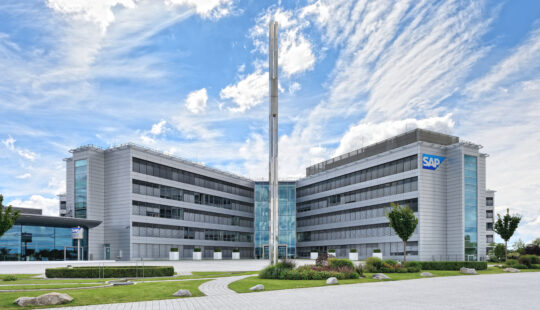To find out if your social enterprise program is valuable, ask the beneficiaries. When researchers from 60 Decibels did just that, they discovered that nearly three out of four beneficiaries from three workforce development social enterprise programs worldwide – all partners of the SAP Social Sabbatical initiative – found value in acquiring new skills and the ability to get a better job.
Almost 700 people who attended workforce development or entrepreneurship programs provided feedback to the survey. Participants were predominantly disadvantaged or disabled youth who averaged 28 years old and were evenly split between genders. What they all shared was the desire for a better life, whether they struck out on their own or worked for an organization in pretty much any industry.
“It’s impossible to measure the impact of volunteerism unless you actually talk with the beneficiaries. Unlike traditional post-project research that can take years to get results, our remote data collection and analysis approach surfaces project impact in weeks, making it actionable faster for corporate sponsors like SAP and their social enterprise partners and the communities they serve,” said Sasha Dichter, cofounder and CEO at 60 Decibels. “With near real-time information from beneficiaries, organizations can hold themselves accountable, quickly comparing results from different geographies and using the data to improve offerings based on participant feedback.”
Having participated in the SAP Social Sabbatical program, I can attest to the deeply satisfying and motivational experience of providing hands-on support to my in-country partners at Business Botswana. To date, the global, pro-bono consulting program run in partnership with PYXERA Global has helped over 450 nonprofits and social enterprises address business challenges using the skills and knowledge of SAP employees like me. But what really matters is how these social enterprise programs make a difference in the lives of the people in the communities they serve, reducing inequalities and supporting underserved populations. Accurate metrics on program results prove the efficacy of these programs and become the foundation of future deep impact plans.
Metrics Reveal Long-Lasting Improvements
Seventy-seven percent of respondents to the 60 Decibels survey said that their quality of life had improved. People in the entrepreneurship programs cited gains in skills and knowledge, along with positive changes in their perspectives, business expansion, and, tellingly, higher customer satisfaction. Professional, financial, and personal growth were the top three positive outcomes for beneficiaries who participated in workforce development programs. When asked to rate skills gained through their participation in one social enterprise program, beneficiaries ranked computer skills highest (70%), followed by communication (45%), better time management (40%), ability to navigate teamwork (32%), and enhanced professional skills (32%).
Notably, almost 60% of beneficiaries in both programs reported an upswing in their business revenue or income. Results ran the gamut from the ability to save money to strengthened leadership, networking, and other business strategies.
Measurable results went beyond business fundamentals. Almost 70% of beneficiaries reported a significant uptick in their self-confidence, having increased their skills so they could become more independent and “act on a vision” for the future. Forty-five percent said they garnered greater respect from household members after attending the program. Breaking free of parental support was a benefit for many people, allowing them to make a more valuable contribution to their home. Numerous people credited their newfound professional maturity to their experience in workforce development programs.
“It’s important to measure the 360-degree view of program impact,” said Dichter. “Getting a job and increasing your income is immediate, but there’s also the lasting experiential results that someone carries into their family life and throughout their career.”
Triple Impact of Social Enterprise Programs
This year marks the 10th anniversary of the SAP Social Sabbatical program, and I talked with Hemang Desai, global program director of SAP Social Sabbatical, who saw the results of the study as validation of its success.
“We’re committed to delivering triple impact for long-term, sustainable benefits to social sector organizations and the people and communities they serve, as well as the personal and professional growth of SAP employees,” he said. “Our program is continuously evolving to address global challenges aligned with SAP’s corporate social responsibility strategy, Most recently, that includes increased collaboration with nonprofits and social enterprises to meet sustainability objectives such as climate action and circular economy. We’re focused on scaling our efforts, using what we’ve learned to expand pro-bono services to social enterprises supporting economic equity and social justice.”
As global calls for sustainability grow louder, social enterprises that educate and train disadvantaged people for fulfilling careers that address these challenges are a potent force for positive change. In fact, I’m actively involved in SAP’s newly-launched virtual social entrepreneurship support program, Acceleration Collective. I’m providing communications coaching and consulting to Durian, a Nigerian-based social enterprise that educates women in rural communities to become self-sufficient, turning local waste into a sustainable livelihood. Climate change negatively impacts the most disadvantaged populations, offering social enterprise programs another opportunity for meaningful community impact.
Follow me @smgaler.
This also appeared on SAP BrandVoice on Forbes.



